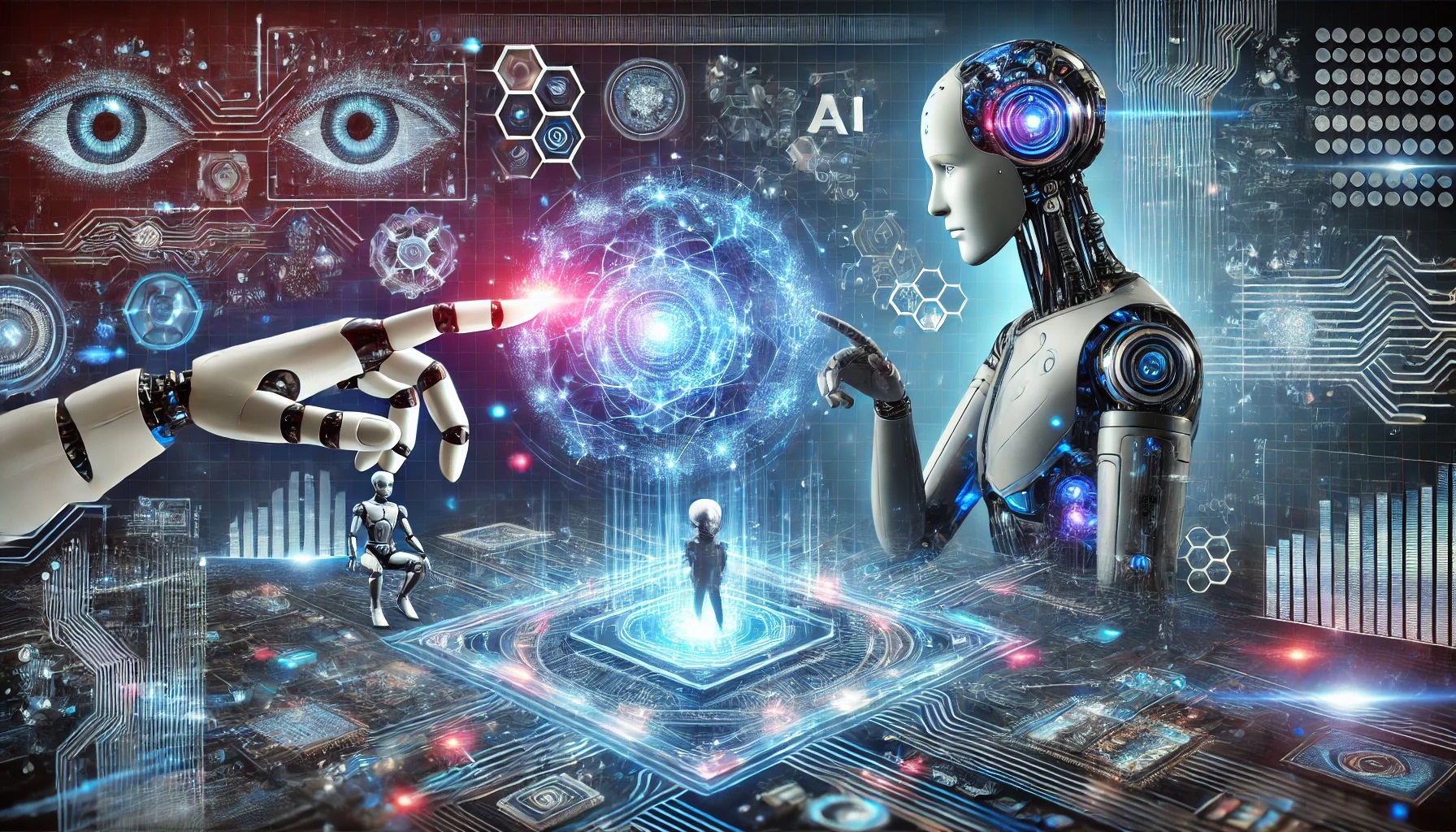Creating Your Roadmap for Success
Introduction: Turning Knowledge into Action
You’ve journeyed through the fundamentals of AI, explored its advanced trends, and even built your first AI project. But how do you turn this knowledge into a structured plan for mastering AI? The world of AI is vast, and navigating it requires focus, dedication, and a clear roadmap.
In this final installment of our AI Terminologies Series, we’ll guide you through creating a personalized AI learning plan. Whether you’re a student, a professional, or an enthusiast, this roadmap will help you progress step-by-step, turning your interest in AI into expertise.
Step 1: Define Your Goals
Start by understanding what you want to achieve with AI. Your goals will dictate your learning path and the tools you’ll need.
Questions to Ask Yourself:
- Do you want to specialize in a specific area like machine learning, NLP, or computer vision?
- Are you aiming for a career in AI, or do you want to integrate AI into your current role?
- Do you prefer working on theoretical research or practical applications?
Examples:
- A data scientist might focus on machine learning and big data analysis.
- A developer may prioritize frameworks like TensorFlow or PyTorch for building applications.
Step 2: Master the Basics
Key Topics to Learn:
- Mathematics for AI:
- Linear algebra, calculus, and probability.
- Resources: Khan Academy, 3Blue1Brown on YouTube.
- Programming Skills:
- Languages: Python is a must for AI development.
- Resources: Codecademy, freeCodeCamp.
- AI and ML Fundamentals:
- Concepts like supervised and unsupervised learning, neural networks, and deep learning.
- Resources: Coursera’s “Machine Learning” by Andrew Ng.
- Data Handling:
- Learn to preprocess, clean, and visualize data using libraries like Pandas and Matplotlib.
Step 3: Explore Specialized Domains
Once you’re comfortable with the basics, dive into specialized areas that align with your goals.
Popular Domains and Resources:
- Natural Language Processing (NLP):
- Learn about text analysis, chatbots, and language models.
- Resources: Hugging Face tutorials, “Deep Learning for NLP” on Coursera.
- Computer Vision:
- Work on image classification, object detection, and video analysis.
- Resources: PyImageSearch, FastAI.
- Reinforcement Learning:
- Build agents that learn from their environment.
- Resources: OpenAI Gym, Udacity’s “Reinforcement Learning Nanodegree.”
- AI Ethics:
- Understand the ethical challenges and solutions in AI.
- Resources: IBM’s “AI Ethics” course, IEEE’s Ethically Aligned Design documents.
Step 4: Build Hands-On Projects
Why Projects Matter:
- Reinforce theoretical knowledge.
- Build a portfolio to showcase your skills.
- Gain confidence in solving real-world problems.
Beginner Project Ideas:
- Predict house prices using machine learning.
- Create a sentiment analysis tool for tweets.
- Build an image classifier for identifying flowers.
Intermediate Project Ideas:
- Develop a chatbot using NLP techniques.
- Create a recommendation system for e-commerce.
- Implement an object detection system with YOLO.
Advanced Project Ideas:
- Train a self-driving car simulation.
- Design a generative adversarial network (GAN) to create artwork.
- Use federated learning for a privacy-focused AI model.
Step 5: Use AI Tools and Frameworks
Familiarize yourself with tools that streamline AI development.
Essential Tools and Frameworks:
- Google Colab: For coding in the cloud.
- TensorFlow/Keras: For deep learning.
- PyTorch: For dynamic computation graphs.
- Hugging Face: For NLP projects.
- Scikit-learn: For classical machine learning.
Step 6: Join AI Communities
Why It’s Important:
- Learn from experts and peers.
- Stay updated on the latest advancements.
- Collaborate on open-source projects.
Communities to Join:
- Kaggle: Participate in AI competitions.
- Reddit: Join subreddits like r/MachineLearning.
- GitHub: Explore and contribute to AI repositories.
- LinkedIn Groups: Network with professionals in AI.
Step 7: Stay Updated with AI Trends
AI is constantly evolving. Keep learning about the latest trends and tools to stay ahead.
How to Stay Updated:
- Follow AI blogs and podcasts like “Towards Data Science” and “AI Alignment.”
- Subscribe to newsletters like “The Batch” by DeepLearning.ai.
- Attend webinars and conferences like NeurIPS and CVPR.
Step 8: Pursue Certifications and Advanced Learning
Enhance your credibility and deepen your knowledge with certifications and advanced degrees.
Recommended Certifications:
- Google’s TensorFlow Developer Certificate.
- AWS Certified Machine Learning – Specialty.
- Microsoft Certified: Azure AI Engineer Associate.
Advanced Degrees:
- Enroll in master’s programs or nanodegrees in AI, machine learning, or data science.
Sample 6-Month Roadmap to Master AI
Month 1-2:
- Learn Python, basic math, and ML fundamentals.
- Complete a beginner’s project (e.g., image classification).
Month 3-4:
- Dive into a specialized domain like NLP or computer vision.
- Work on an intermediate project (e.g., chatbot or recommendation system).
Month 5-6:
- Experiment with advanced tools like TensorFlow or PyTorch.
- Build a portfolio-worthy project.
- Join AI communities and participate in competitions.
Conclusion: Embark on Your AI Journey
Mastering AI is not about reaching a destination—it’s a continuous journey of learning and exploration. By following this roadmap, you’ll gain the skills, experience, and confidence to make meaningful contributions in the world of AI.
This concludes our AI Terminologies Series, but it’s just the beginning of your AI journey. Stay tuned to Explore AIQ for more advanced guides, tutorials, and inspiring stories that empower you to thrive in the age of artificial intelligence.




